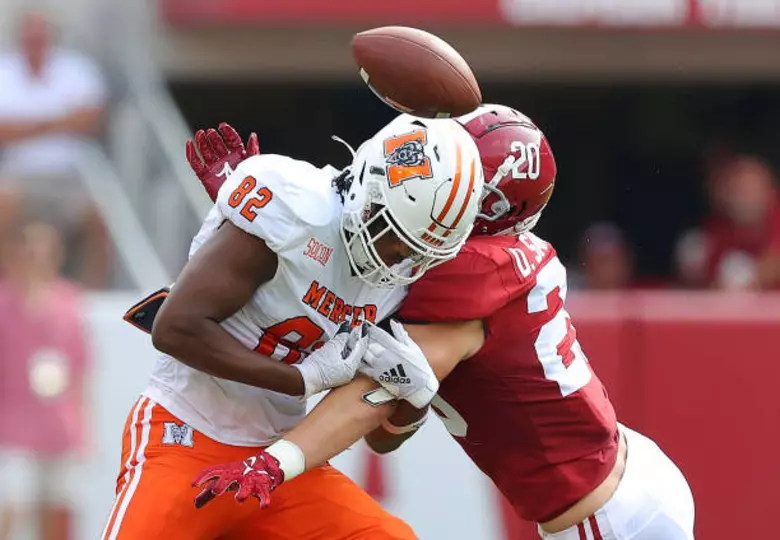
Is Alabama vs. Mercer a Meaningful Matchup or a Scheduling Scandal?
This Saturday, Alabama Crimson Tide faces the Mercer Bears in a game that’s raising eyebrows across the college football landscape. The No. 1 or No. 2 team (depending on the poll) is pitted against Mercer, a small Southern Conference team without even a blip on the national radar. With Alabama fighting for a place in the College Football Playoff, some fans are asking: What’s the point? Is this game about competition, or simply padding records and bank accounts? Here’s why some argue that Alabama’s scheduling of Mercer reflects everything wrong with college football.
1. The Competitive Value Problem
Alabama’s decision to host Mercer in November raises a glaring question: how much does a powerhouse like Alabama benefit from playing an FCS team so late in the season? With most top programs locked in fierce conference battles, Alabama’s choice feels like a midseason scrimmage disguised as a legitimate game. For fans of both teams, the lack of competitiveness can feel like an insult; for Alabama fans, there’s no real challenge, while Mercer fans face the inevitability of watching their team struggle against one of the most dominant programs in college football history.
Critics argue that matchups like this undermine the spirit of college football by prioritizing predictable blowouts over genuinely competitive games. Imagine being a fan who bought tickets to this game, expecting to see a display of college football at its finest, only to witness a one-sided rout that could lose its intrigue by halftime.
2. Financial Motives Over Fair Play?
The ugly truth is that games like Alabama vs. Mercer are often more about economics than athletics. When a small FCS team like Mercer plays Alabama, it’s common for the powerhouse program to pay a hefty “guarantee fee” – often upwards of half a million dollars – to the visiting school. For Mercer, this payday goes a long way to help fund its football program, but at what cost to the game’s integrity?
Alabama, meanwhile, fills seats, drives TV ratings, and secures an easy win, keeping fans engaged and money flowing. This arrangement can feel like a mockery of the playoff-bound team’s stature, as critics suggest that Alabama should be taking on higher-ranked teams if it’s serious about earning its playoff spot. Should Alabama be able to schedule such games in November, when fans want to see them prove their worth against opponents that could realistically pull an upset?
3. What’s at Stake for the Rankings?
Alabama, as we all know, is eyeing a College Football Playoff spot. Beating Mercer will have minimal to no impact on their playoff resume, yet an unexpected slip-up could be catastrophic. Though Alabama is heavily favored to win, a sloppy performance could raise questions about the team’s playoff readiness. It’s a paradox: while this game is set up to ensure Alabama’s win, it’s almost meaningless in the eyes of playoff selectors.
What’s more, scheduling a game like this so close to playoff selection time fuels the argument that top-tier programs get away with “cupcake games,” while other teams in competitive conferences must battle worthy adversaries week in and week out. Even if Alabama wins big, should such a victory be weighted equally with teams that play legitimate competition? Fans and analysts alike have long argued that these mismatches give elite programs a scheduling loophole, allowing them to effectively “rest up” before a major game.
4. A Losing Experience for Both Sides
Games like this don’t only harm Alabama; they can also be demoralizing for a team like Mercer. When small programs are repeatedly scheduled to face teams they have virtually no chance of beating, does it do anything to improve their players or build a sense of success? Mercer’s players go into this game aware of the slim odds of victory and the probable outcome. Instead of showcasing their skills in a reasonably competitive environment, they face a likely blowout, risking injuries and potential burnout.
From the players’ perspective, what’s the benefit? Instead of elevating their program, these games often reinforce the gap between the elite and the underfunded, giving teams like Mercer no real opportunity to improve their national standing.
Final Thoughts: Are We Just as Complicit?
For all the controversy, there’s no denying that games like Alabama vs. Mercer are watched, tweeted, and written about – including by critics who can’t resist following the spectacle. The enduring cycle of financial motivations, playoff aspirations, and inevitable outcomes draws attention, even if it’s sometimes negative. Are we, as fans and media, perpetuating the very system we criticize by tuning in?
In an ideal world, powerhouse programs would face off against formidable opponents every week, providing fans with nail-biting, hard-fought games from start to finish. But college football has transformed, becoming as much about profits and optics as about true athletic competition. As Alabama hosts Mercer this Saturday, maybe we should ask ourselves: when will fans start demanding that elite programs prove their worth against teams who pose a genuine challenge?
Only time will tell if the powers that be will finally prioritize the fans and players over their financial incentives – until then, we’ll be left watching Alabama vs. Mercer, a game that symbolizes college football’s divide between revenue and real competition.




